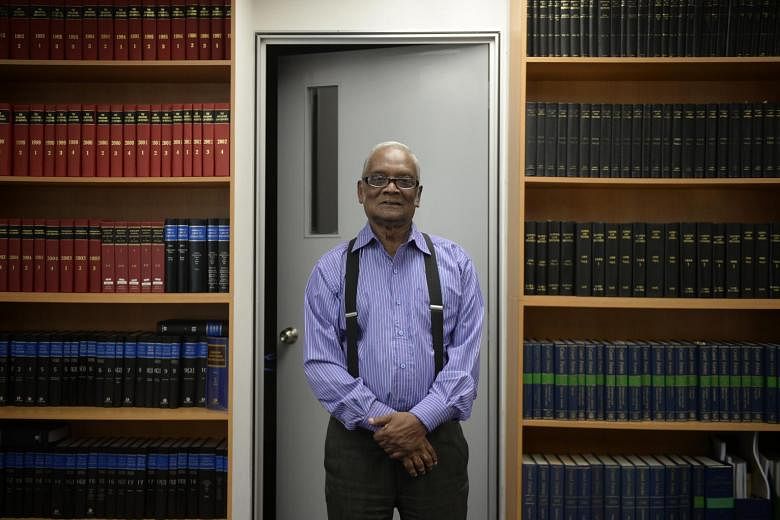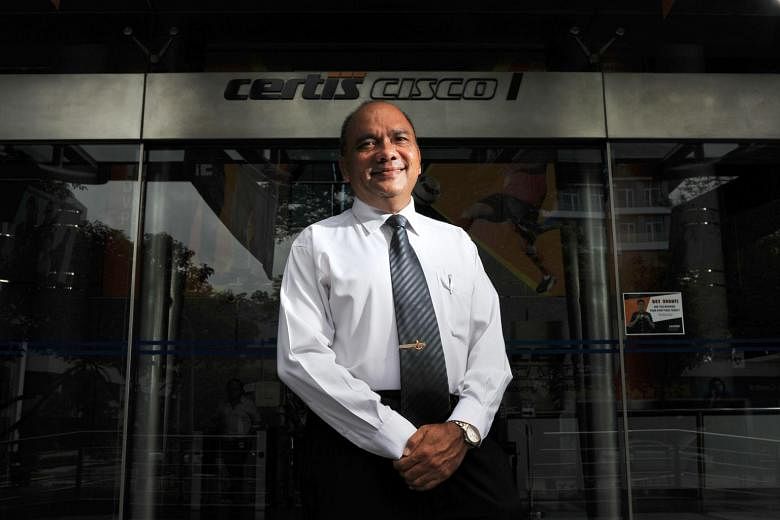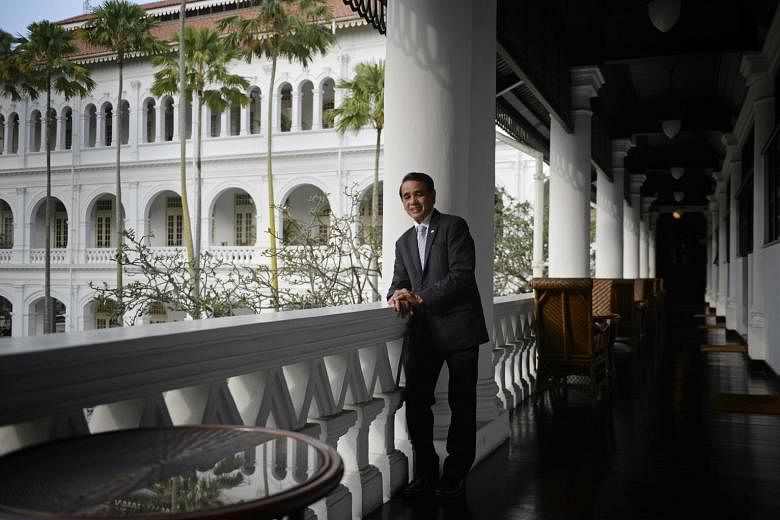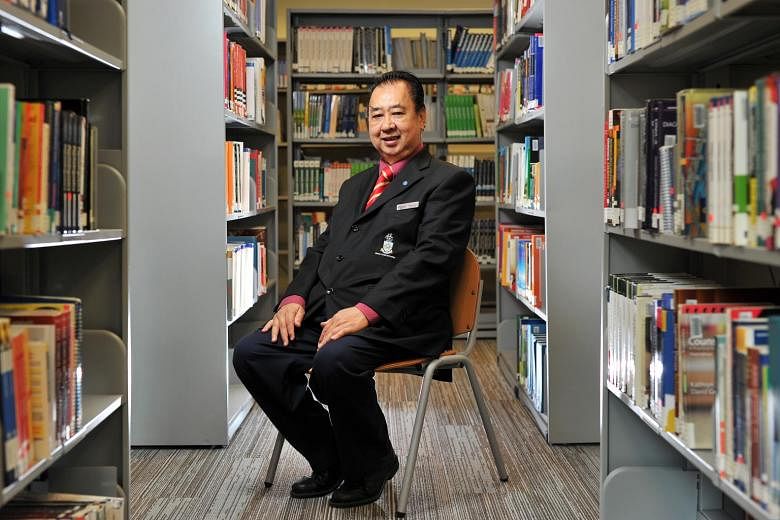Manpower Minister Lim Swee Say announced last week that the Government will subsidise the wages of older local professionals, managers and executives (PMEs) who have been unemployed for at least six months, to encourage companies to hire them.
Under this two-year pilot programme which kicks off on Oct 1, a company will receive between $7,200 and $12,600 a year for hiring a jobless PME aged between 40 and 49 and between $14,400 and $25,200 a year for hiring an unemployed PME aged 50 and above.
In addition, changes will be implemented to make it tougher to hire foreign professionals.
Currently, there are schemes such as WorkPro that fund companies so that they can help older workers and mothers get back to work. Employers who have hired older, local professionals have told The Straits Times these workers are more stable. Mr G. Kartheesan, director of IT and engineering firm Big Three Strategies, said: "They do not stay on their mobile phones all the time and are very focused on their tasks."
Mr Tan Jui Chai, deputy head of corporate human resources at security company Certis Cisco, said: "(Older professionals) bring with them a wealth of experience."
According to the Tripartite Alliance for Fair and Progressive Employment Practices, workplace discrimination complaints related to age have remained stable at one in six over the past five years.
Its general manager Roslyn Ten said: "(Older white-collar workers) bring benefits such as strong loyalty, commitment and work ethic to the table, manifesting in lower turnover and absenteeism. They are also great mentors to their younger colleagues. Job seekers, such as older PMEs, must constantly reinvent themselves, keeping their skills relevant and remaining flexible."
We profile five older professionals who are happy to be gainfully employed.
'I cannot sit still and idle'
G. Ramanathan, 76
Occupation: Accounts manager
Company: B. Rao and K. S. Rajah
Every morning, Mr G. Ramanathan wakes up at 6am and does about 20 minutes of stretching before showering. "It's like mini yoga," said the 76-year-old grandfather of two. It keeps his mind fresh, he explained.
He arrives at his office at the void deck of a Housing Board block near Outram Park at 8.30am, half an hour before he is supposed to.
That has been his routine for the past 25 years at law firm B. Rao and K. S. Rajah. He said: "I make sure the cash flow, the accounts are in order."
On weekends, when he is not working, he runs 8km around his estate in West Coast. "I cannot sit still and idle... I just never imagined retiring. That isn't the life for me," he said.
He also volunteered at the recent SEA Games. "I was stationed on the fourth floor of the Swissotel, to take care of the volunteers and delegates," he said.
"The secret to a happy, fulfilling life is loving what you do, and I found it in work, sports and family."
Army skills come in handy
Edward Joseph, 63
Occupation: Senior manager
Company: Certis Cisco
As a former military man, Mr Edward Joseph has found that many of the skills he picked up in the army are useful in his current position as a senior manager in security firm Certis Cisco, where he teaches trainees.
For example, in his training, he stresses the importance of being prepared - a value he developed during his stint in the army. He retired as a lieutenant-colonel in 2003.
"Trainees have to learn to be ready for anything," he said. "Emergency planning - right down to making sure that you have batteries in your torchlights and loudhailers - is a lot of what we do, because anything can happen."
He also teaches his trainees how to prepare security plans. "Whenever we have assets we need to protect, we will draw up a plan... and I will help to identify risks."
In addition, the grandfather of two has been teaching security studies at Temasek Polytechnic for the past nine years.
"I love teaching," Mr Joseph said. "The joy of watching your students graduate is tremendous. I've never missed a graduation."
Sharing Raffles Hotel's history with guests
Leslie Danker, 75
Occupation: Resident historian
Company: Raffles Hotel
On his train journey from Serangoon to City Hall, Mr Leslie Danker's eyes, like many other commuters', remain fixed on his mobile phone.
The 75-year-old, however, is not scrolling through his Facebook feed or swiping candies on popular mobile game Candy Crush. He is searching for information on Raffles Hotel where he works as a resident historian. His job is to talk to guests about the hotel's history of more than a century.
The grandfather of two has been with Raffles Hotel for more than 20 years, but his fascination with one of Singapore's oldest hotels began when he was just a schoolboy.
"Whenever I walked by, I was impressed by the architecture. It never gets old," he said, adding: "I've landed my dream job. Why would I retire?"
He remembers being worried that he might be laid off when the hotel changed hands in 1989, but the management asked him to stay on as a guest relations officer when the hotel reopened two years later .
"I have a habit of carrying a black book to note down interesting things about the hotel," he said.
"So I always have tidbits of information to share with guests."
Landed her first job at 60
Thahera Manzur, 62
Occupation: Administrative consultant
Company: Big Three Strategies
Growing up in India, Mrs Thahera Manzur stopped schooling at 17 and left the country to see the world with her seafaring husband. "I got married early and became a housewife," said Mrs Manzur.
They settled down in Singapore in 1977, when she was 24, after they had spent two years at sea.
She stayed home, taking care of her only daughter. "I've always felt (it was ) unfair that my brothers had higher education. I wanted to study more too... Whenever I travelled, I refused to call myself a 'housewife'. I always filled in 'housemaker' when the immigration cards asked for my occupation... It sounded more professional."
The desire for higher education and a career became stronger after her daughter moved to the United States in 1991 and got married five years later. "I felt lonely," she said. So in February 2012, at the age of 59, the grandmother of one studied for a Diploma in Business Management at the Management Development Institute of Singapore, and landed her first job two years ago.
To prepare for her diploma, she also took classes in 2008 at two private schools. "Statistics and business law were so difficult. I got through with the help of my husband, classmates and teachers," she said.
Mrs Manzur added: "I remember my first day at work. I was so happy and nervous. Happy because I'd wanted a career for so long; nervous because I wasn't sure if I was up to the task. " She is glad she joined the workforce. "I look forward to going to work every day. I have colleagues, and I chat with them during breaks."
Enjoying a less hectic pace
Philip Seah, 70
Occupation: Librarian
Company: James Cook University
When Mr Philip Seah joined James Cook University as a librarian seven years ago at the age of 63, he didn't expect to be offered a full-time position. He thought his age was a barrier to full-time employment.
The former part-time teacher was looking for a slower pace of life after he left behind 11-hour workdays on top of marking. "I didn't want to stop working but I didn't want a hectic life either."
Now, on weekdays, he goes in to work - at a two-storey library on the campus near Aljunied - about half an hour before he is supposed to and stays until about 6pm. He spends his weekends playing with his two grandchildren and cooking for them.
His job includes helping students and lecturers look for research materials. He also teaches them how to look for journal articles and books, both online and in print.
He thought he would leave after a couple of years to do charity work, but the university's inclusive culture convinced him to stay.
"My colleagues and I are very close. We have lunch together," he said. "The senior management have no airs, and they are first to greet anybody they see."
"I'm also a workaholic," he added. "I cannot sit at home and do nothing."






